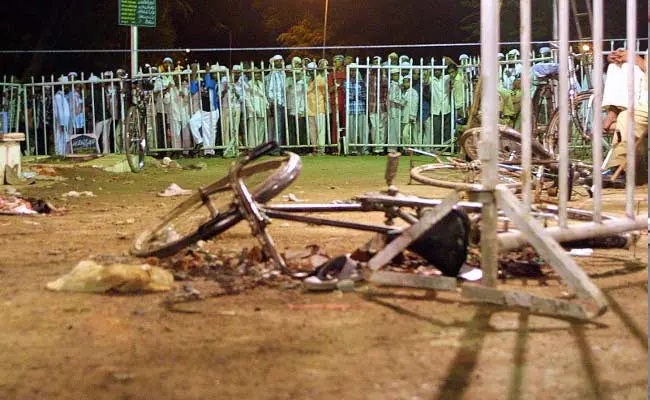Anti-Terror Agency Tells Court: Malegaon Blast Meant to Incite Communal Tensions
The prosecution was making its final arguments in the case.
Mumbai:
The prosecution argued that the 2008 Malegaon blast, which resulted in six deaths and injured over 100 people, was executed to incite communal tension and jeopardize the state’s internal security.
The final arguments in the case, involving seven accused including former BJP MP Pragya Thakur and Lieutenant Colonel Prasad Purohit, commenced on Thursday, nearly 16 years post the incident.
On September 29, 2008, a bomb detonated at 9:35 pm near Shakil Goods Transport Company, between Anjuman Chowk and Bhiku Chowk in Malegaon, causing six fatalities and injuring 101 individuals.
According to the prosecution, the explosion was caused by an improvised explosive device attached to a motorcycle, allegedly owned by former Bhopal MP Pragya Thakur.
The trial against one accused, Sameer Kulkarni, has been stayed by the Supreme Court. Other accused include Major Ramesh Upadhyay (retired), Ajay Rahirkar, Sudhakar Dwivedi, and Sudhakar Chaturvedi. They are being tried under the Unlawful Activities Prevention Act (UAPA) and the Indian Penal Code (IPC).
“The blasts were carried out during the holy month of Ramzan and the onset of Navratri Utsav to terrorize people, cause loss of life and property, disrupt essential community services, create communal rift, and endanger the state’s internal security,” the National Investigation Agency (NIA), represented by special public prosecutors Avinash Rasal and Anushree Rasal, stated.
The Maharashtra Anti Terrorism Squad (ATS) initially investigated the case before it was transferred to the NIA, a central agency.
In the final argument, the prosecution referenced the ATS probe, which alleged that Purohit brought RDX from Kashmir after his posting there and stored it at his residence.
The ATS investigation found RDX traces in the Nashik house of Sudhakar Chaturvedi, where the bomb was assembled, and claimed Thakur knowingly provided her motorcycle for the blast, the NIA’s final argument noted.
After taking over the investigation, the NIA filed a chargesheet in 2016, exonerating Thakur and three others—Shyam Sahu, Praveen Takalki, and Shivnarayan Kalsangra—due to insufficient evidence, and requested their discharge from the case.
The NIA court, however, only discharged Sahu, Kalsangra, and Takalki, ruling that Thakur must face trial.
At the time, the special court dropped charges under the stringent Maharashtra Control of Organised Crime Act (MCOCA) against the accused.
On October 30, 2018, the special court framed charges against the seven accused under UAPA and IPC.
The accused are being tried under sections 16 (committing terrorist act) and 18 (conspiring to commit terrorist act) of the UAPA, and IPC sections 120(b) (criminal conspiracy), 302 (murder), 307 (attempt to murder), 324 (voluntarily causing hurt), and 153(a) (promoting enmity between two religious groups).
Following the framing of charges, the trial commenced in 2018 with the examination of the first witness. Testimonies from prosecution witnesses concluded in September last year.
The final arguments are set to continue on Friday.
Waiting for response to load…

